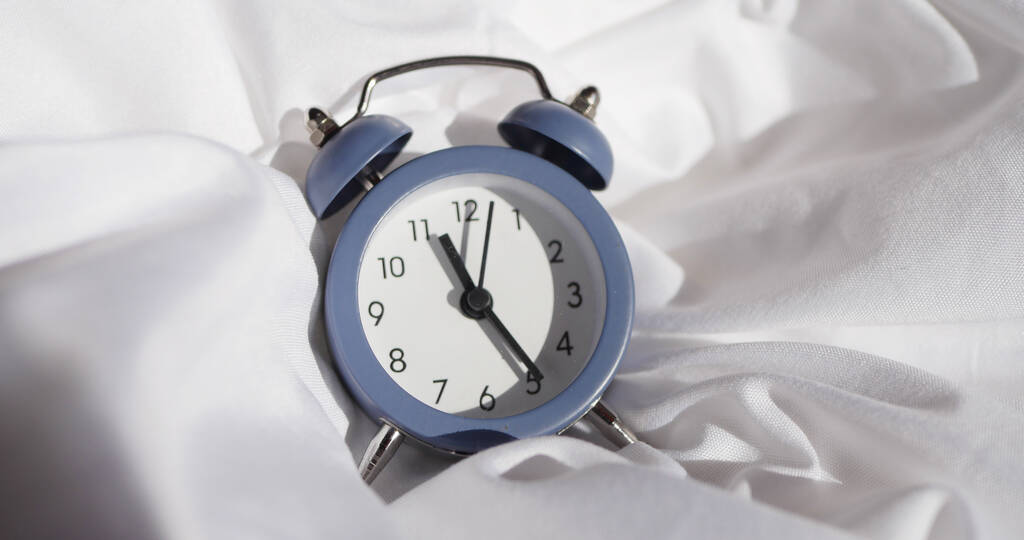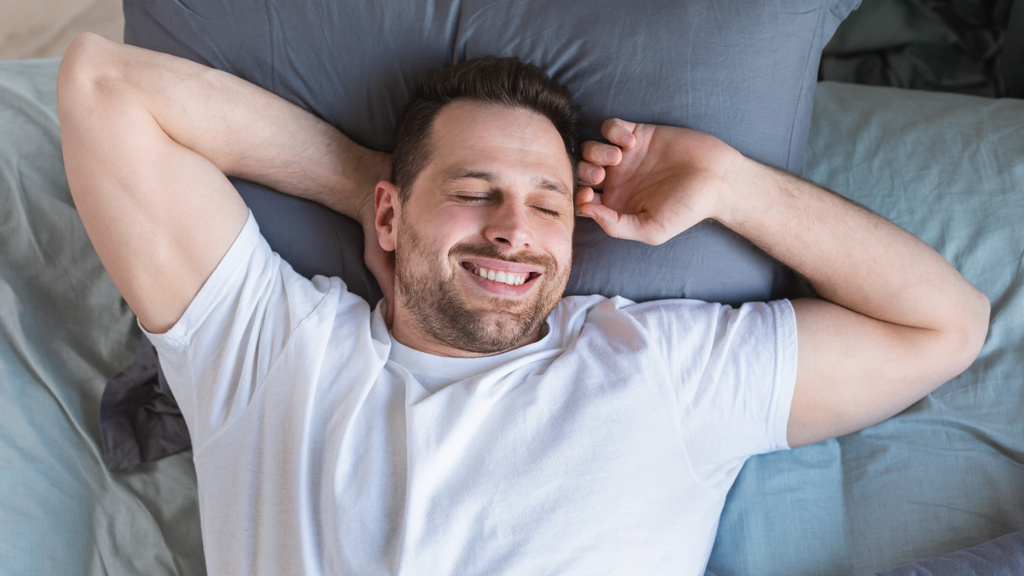Sleep Duration: Sleep Aid Explained
September 13, 2023

Welcome, dear reader, to the realm of the Sandman, where we'll embark on a journey to unravel the mysteries of sleep duration and sleep aids. So, grab your nightcap, fluff up your pillow, and let's dive into the world of dreams and restful slumbers.
Understanding sleep duration and sleep aids is like trying to count sheep; it might seem simple at first, but there's a lot more to it than meets the eye. But don't worry, by the end of this journey, you'll be a veritable sleep maestro, ready to orchestrate your nights for the best rest possible.

The Science of Sleep Duration
Before we delve into the nitty-gritty of sleep aids, let's first understand what sleep duration is all about. You see, sleep isn't just a time when your body decides to play 'statue'; it's an active period during which a lot of important processing, restoration, and strengthening occurs. And the length of this period, dear reader, is what we call sleep duration.
Now, you might be wondering, "How long should I be sleeping?" Well, that's like asking how long a piece of string is. It varies from person to person, and depends on factors like age, lifestyle, and health. But generally, for adults, a good night's sleep ranges from seven to nine hours.
Why Sleep Duration Matters
Imagine you're building a sandcastle. You wouldn't stop halfway, would you? The same goes for sleep. Cutting your sleep short can affect your body's ability to repair muscles, consolidate memory, and release hormones that regulate growth and appetite. So, skimping on sleep is like leaving your sandcastle half-built – it just won't stand up to the tide of daily life.
On the flip side, oversleeping isn't a bed of roses either. It can lead to health problems like diabetes, heart disease, and increased risk of death. So, like Goldilocks, it's important to find the sleep duration that's just right for you.
Factors Affecting Sleep Duration
Now, you might be thinking, "I'll just set my alarm for nine hours from now and I'll be golden." But alas, it's not that simple. Factors like stress, environment, and diet can affect your sleep duration. For example, a noisy environment might keep you from falling asleep, while a heavy meal just before bed can lead to disrupted sleep.
And then there's the biggie: insomnia. This sleep disorder can make it hard for you to fall asleep, stay asleep, or both. But don't fret, dear reader, for this is where sleep aids come into play.
Understanding Sleep Aids
Just as a lullaby can soothe a restless child, sleep aids can help those struggling with sleep. These are products, behaviors, or practices that can help promote better sleep. They range from over-the-counter medications and prescription drugs, to natural remedies and lifestyle changes.
But remember, sleep aids aren't a one-size-fits-all solution. What works for one person might not work for another. So, it's important to understand the different types of sleep aids and how they work.
Over-the-Counter Sleep Aids
Over-the-counter (OTC) sleep aids are like the fairy godmother of sleep – they can help you drift off when counting sheep just isn't cutting it. These usually contain antihistamines, which are medications originally designed to treat allergies. They work by blocking histamine, a chemical in the body that keeps you awake.
However, while OTC sleep aids can be helpful, they're not meant for long-term use. They can cause side effects like drowsiness the next day, dry mouth, and blurred vision. So, it's always best to consult with a healthcare provider before using these aids.
Prescription Sleep Aids
Prescription sleep aids are like the heavy artillery of sleep aids. They're used for more severe sleep problems, like chronic insomnia. These medications work in different ways, but they generally help you fall asleep faster, stay asleep longer, or reduce the number of times you wake up during the night.
But remember, with great power comes great responsibility. These aids can cause side effects like dizziness, memory problems, and even sleep behaviors like sleepwalking. So, they should only be used under the supervision of a healthcare provider.
Natural Sleep Aids
Natural sleep aids are like the Mother Nature of sleep aids. They include things like herbal supplements, aromatherapy, and certain foods. For example, melatonin is a hormone that your body produces naturally to regulate sleep. It's also available as a supplement and can help adjust your body's internal clock.
However, just because something is natural doesn't mean it's safe for everyone. Some natural sleep aids can interact with other medications, and others may not be safe for people with certain health conditions. So, as with all sleep aids, it's important to consult with a healthcare provider before use.
Behavioral and Lifestyle Changes as Sleep Aids
Behavioral and lifestyle changes are like the DIY of sleep aids. They involve making changes to your daily habits and routines to promote better sleep. This can include things like maintaining a regular sleep schedule, creating a restful sleep environment, and avoiding caffeine and electronics before bed.
These changes can be very effective in improving sleep duration and quality. In fact, for some people, they might be all that's needed to get a good night's sleep. But remember, change takes time, so be patient with yourself as you adopt these new habits.
Cognitive Behavioral Therapy for Insomnia (CBT-I)
Cognitive Behavioral Therapy for Insomnia (CBT-I) is like the personal trainer of sleep aids. It's a structured program that helps you identify and replace thoughts and behaviors that cause or worsen sleep problems with habits that promote sound sleep.
CBT-I can be very effective, especially for people with chronic insomnia. It's usually recommended as the first line of treatment before medications. So, if you're struggling with sleep, CBT-I might just be the ticket to dreamland.
Mind-Body Practices
Mind-body practices are like the yoga of sleep aids. They involve techniques that help you relax and manage stress, like meditation, deep breathing, and progressive muscle relaxation. These practices can help you unwind and prepare your body for sleep.
Research has shown that these practices can improve sleep duration and quality. So, if you're looking for a natural and holistic approach to better sleep, mind-body practices might be worth exploring.
Choosing the Right Sleep Aid
Choosing the right sleep aid is like choosing the right bedtime story – it depends on your individual needs and circumstances. What works for one person might not work for another. So, it's important to consider factors like your specific sleep problem, your overall health, and any potential side effects.
It's also important to remember that sleep aids aren't a cure-all. They're usually most effective when used as part of a comprehensive sleep management plan, which might include lifestyle changes, behavioral therapies, and medical treatments.
Consulting with a Healthcare Provider
Consulting with a healthcare provider is like asking a wise old owl about sleep. They can help you understand your sleep problems, recommend appropriate sleep aids, and monitor your progress. They can also help you navigate any potential side effects and interactions with other medications.
So, before you start using any sleep aids, make sure to have a chat with your healthcare provider. They can guide you on your journey to better sleep.
Monitoring Your Sleep
Monitoring your sleep is like keeping a dream journal. It can help you understand your sleep patterns, identify factors that might be affecting your sleep, and track your progress with different sleep aids. This can be done through a sleep diary or with the help of sleep tracking devices.
By understanding your sleep, you can make more informed decisions about your sleep management plan. So, start keeping track of your sleep – you might be surprised at what you discover!

Conclusion
And there you have it, dear reader – a comprehensive guide to sleep duration and sleep aids. From the science of sleep duration to the different types of sleep aids, we've covered it all. But remember, sleep is a personal journey, and what works for one person might not work for another.
So, as you embark on your journey to better sleep, remember to be patient with yourself, consult with a healthcare provider, and keep an open mind. Sweet dreams!

 Back to Blog
Back to Blog